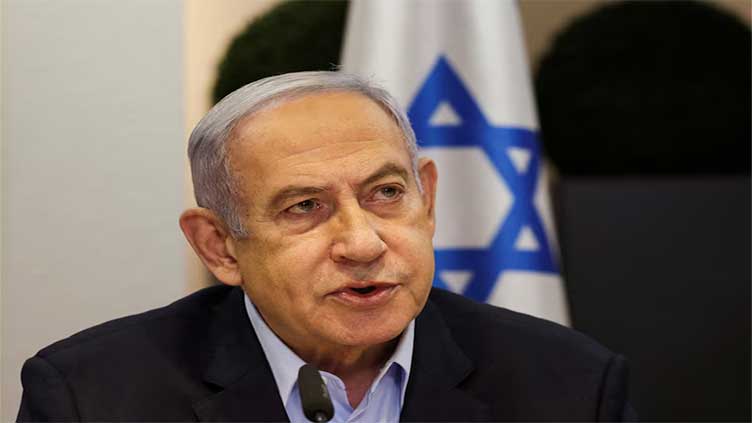Netanyahu not consulted on killing of Haniyeh's sons, Israeli media say

World
Walla news agency said neither Netanyahu nor Defence Minister Yoav Gallant had been told in advance
JERUSALEM (Reuters) – Israeli forces killed three sons of Hamas leader Ismail Haniyeh in an air strike in Gaza without consulting senior commanders or political leaders including Prime Minister Benjamin Netanyahu, Israeli media reported on Thursday.
Quoting senior Israeli officials, Walla news agency said neither Netanyahu nor Defence Minister Yoav Gallant had been told in advance of the strike, which was coordinated by the Israeli military and the Shin Bet intelligence service.
It said Amir, Mohammad and Hazem Haniyeh had been targeted as fighters and not because they were the sons of Hamas's political leader. The Israeli military did not comment on reports that four of Haniyeh's grandchildren had also been killed.
No comment on the Walla report was immediately available from the prime minister's office or the military.
The killing of Haniyeh's relatives has added a potential complication to negotiations aimed at securing a halt in the fighting in Gaza in exchange for the return of the 133 Israeli hostages still believed to be held in the besieged enclave.
Haniyeh said Hamas had "clear and specific" demands for agreeing to any pause in the fighting.
"The enemy will be delusional if it thinks that targeting my sons, at the climax of the negotiations and before the movement sends its response, will push Hamas to change its position," Haniyeh said on Wednesday.
Global calls for a ceasefire have been growing as the war has entered its seventh month but there has been little sign of progress in the talks.
Hamas is demanding an end to the Israeli offensive, a withdrawal of Israeli forces and permission for Gaza's displaced Palestinians to return to their homes.
Israel wants to secure the return of the hostages but says it will not end the war until Hamas is destroyed as a military force, and that it is still planning to assault the southern city of Rafah, where more than a million civilians have taken refuge.


